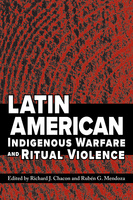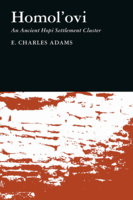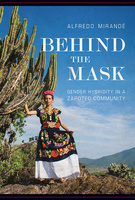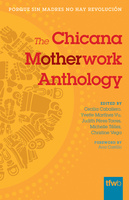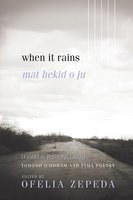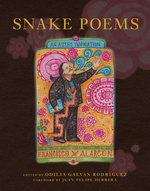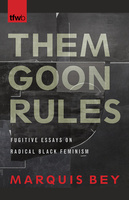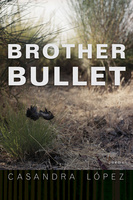The University of Arizona Press is the premier publisher of academic, regional, and literary works in the state of Arizona. They disseminate ideas and knowledge of lasting value that enrich understanding, inspire curiosity, and enlighten readers. They advance the University of Arizona’s mission by connecting scholarship and creative expression to readers worldwide.
Showing 331-340 of 1,705 items.
Latin American Indigenous Warfare and Ritual Violence
Edited by Richard J. Chacon and Rubén G. Mendoza
The University of Arizona Press
Behind the Mask
Gender Hybridity in a Zapotec Community
The University of Arizona Press
Combines historical analysis, ethnographic field research, and interviews conducted with los muxes of Juchitán, a hybrid third gender, over a period of seven years. Sociologist Alfredo Mirandé observed community events, attended muxe velas, and interviewed both muxes and other Juchitán residents. Prefaced by an overview of the study methods and sample, the book challenges the ideology of a male-dominated Mexican society driven by the cult of machismo, featuring photos alongside four appendixes.
The Chicana Motherwork Anthology
Edited by Cecilia Caballero, Yvette Martínez-Vu, Judith Pérez-Torres, Michelle Téllez, and Christine X Vega; Foreword by Ana Castillo
The University of Arizona Press
The Chicana M(other)work Anthology is a call to action for justice within and outside academia. This volume brings together emerging scholarship and testimonios by and about self-identified Chicana and Women of Color mother-scholars, activists, and allies who, using an intersectional lens, center mothering as transformative labor.
Food Fight!
Millennial Mestizaje Meets the Culinary Marketplace
The University of Arizona Press
Food Fight! contributes to urgent discussions around the problems of cultural misappropriation, labeling, identity, and imaging in marketing and dining establishments. Not just about food, restaurants, and coffee, this volume employs a decolonial approach and engaging voice to interrogate ways that mestizo, Indigenous, and Latinx peoples are objectified in mainstream ideology and imaginary.
When It Rains
Tohono O'odham and Pima Poetry
Edited by Ofelia Zepeda
The University of Arizona Press
When It Rains is an intuitive poetry collection that shows us how language connects people. With the poems in both O’odham and English, the volume serves as a reminder of the beauty and changeability of the O’odham language.
Snake Poems
An Aztec Invocation
By Francisco X. Alarcón; Edited by Odilia Galván Rodríguez; Translated by David Bowles and Xánath Caraza; Foreword by Juan Felipe Herrera
The University of Arizona Press
This special edition of Snake Poems offers Nahuatl, Spanish, and English renditions of 104 poems based on Nahuatl invocations and spells that have survived more than three centuries, with a modern ecopoetic response from the late Francisco X. Alarcón.
Them Goon Rules
Fugitive Essays on Radical Black Feminism
By Marquis Bey
The University of Arizona Press
Marquis Bey’s debut essay collection unsettles normative ways of understanding Blackness, Black feminism, and queerness. Them Goon Rules is an un-rulebook, a long-form essayistic sermon that meditates on how Blackness and nonnormative gender impact and remix everything we claim to know.
Rosa's Einstein
Poems
The University of Arizona Press
Using details both from Einstein’s known life and from quantum physics, poet Jennifer Givhan imagines Lieserl, the daughter Albert Einstein and his wife Mileva allegedly gave up for adoption at birth, in a circus-like landscape of childhood trauma and survival, guided by Rosa and her sister Nieve. Rosa’s Einstein is a Latinx retelling of the Brothers Grimm’s Snow-White and Rose-Red, reevaluating border, identity, and immigration narratives through the unlikely amalgamation of physics and fairy tale.
Brother Bullet
Poems
The University of Arizona Press
Speaking to both a personal and collective loss, in Brother Bullet Casandra López confronts her relationships with violence, grief, trauma, guilt, and, ultimately, survival. Revisiting the memory and lasting consequences of her brother’s murder, López traces the course of the bullet—its trajectory, impact, wreckage—in poems that are paralyzing and raw with emotion, yet tender and alive in revelations of light.
Stay Informed
Subscribe nowRecent News


